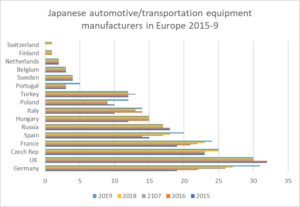Recommended books on Japan or by Japanese authors
Apart from my books and other books and articles by Japan Intercultural Consulting consultants, I recommend:
The classics of foreigners writing about Japan
- The Chrysanthemum and the Sword – Ruth Benedict, 1946
- Empire of Signs – Roland Barthes, 1970
- The Roads to Sata – Alan Booth, 1985
- The Enigma of Japanese Power – Karel Van Wolferen, 1989
Dated but funny and still insightful
- Max Danger – The Adventures of an Expat in Tokyo Robert J Collins, 1987
- Dave Barry Does Japan – Dave Barry, 1992
More recent foreigners writing about Japan
- Bending Through Adversity: Japan and the Art of Survival – David Pilling, 2014 (apparently a new edition is due out in 2020)
- Japan and the Shackles of the Past: What Everyone Needs to Know – R Taggart Murphy, 2015
- Shinto: A History – Helen Hardacre, 2017
- Ghosts of the Tsunami – Richard Lloyd Parry, 2018
- Japan Story – Christopher Harding, 2018
- Stranger in the Shogun’s City – A Woman’s Life in 19th Century Japan – Amy Stanley, 2020
- Japan’s Far More Female Future – Bill Emmott, 2020
Classic Japanese novels
- The Tale of Genji – Murasaki Shikibu, 11th century
- Snow Country – Yasunari Kawabata
- Silence – Shusaku Endo
- The Woman in the Dunes – Kobo Abe
- The Makioka Sisters – Junichiro Tanizaki
- I am a Cat – Natsume Soseki
Modern Japanese novels
- Norwegian Wood Haruki Murakami (and most recent Killing Commendatore)
- Convenience Store Woman – Sayaka Murata
- Out – Natsuo Kirino (and many other crime thrillers)
Websites/news
Most of these have free daily newsletters
For more content like this, subscribe to the free Rudlin Consulting Newsletter. 最新の在欧日系企業の状況については無料の月刊Rudlin Consulting ニューズレターにご登録ください。
Read More LinkedIn
LinkedIn YouTube
YouTube
